What’s the Difference Between Conversational AI vs Chatbot
Artificial intelligence (AI) has definitively transformed communication into a much more efficient process through its innovative contributions to advanced language processing coupled with natural understanding methods and sentiment analysis tools. The implementation of AI-powered chatbots used within customer support services has served effectively by automating a lot of tasks including responses that are specific enough to comprehensively address most initial inquiries even before an agent intervenes actively.

Nowadays, many people rely heavily on voice assistants like Siri and Alexa to answer their queries accurately while also allowing them access to vital information without practically searching it for themselves on the internet manually; this technology ensures people save time while meeting their day-to-day needs quickly.
Conversational AI vs Chatbot: What's the Difference?
Chatbots are popular and become commonplace for businesses because they are able to provide 24*7 customer service and have the ability to increase customer experiences. These days, you can find them on practically any website, and 80% of users have already engaged with chatbots. Users may become frequently puzzled because both chatbots and conversational AI offer conversational experiences.
What is Chatbots?
Chatbot is a computer program that simulates human conversation by automatically responding to user inputs. These chatbots assist effectively in diverse areas such as customer support, information retrieval, or entertainment by utilizing conversational AI techniques, which involve understanding user intent, processing essential data, and generating appropriate responses.
There are two primary types of chatbots: rule-based chatbots and AI-powered chatbots:
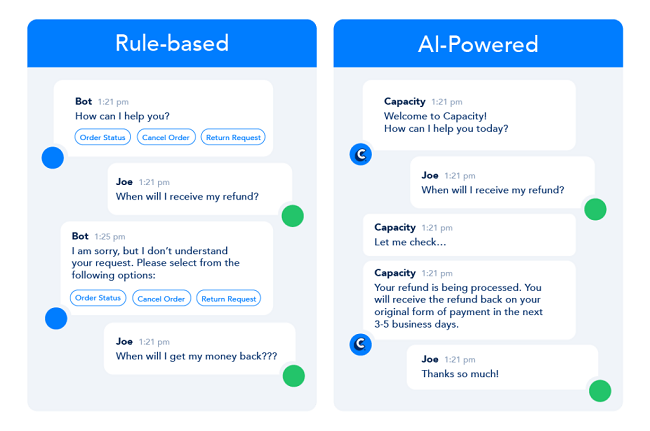
Rule-based chatbots: Respond with established rules and patterns, ideal for limited or predicted interactions. They can respond using pre-programmed reactions to certain words or phrases, assisting customers through product recommendations, order tracking, and payment processes for e-commerce. But they may not answer complex or uncertain questions.
AI-powered chatbots: They employ the efficiency of machine learning algorithms that enable them to enhance their performance gradually. They respond by constantly analyzing large-scale datasets that allow them to adjust swiftly based on different user contexts or inputs. Advanced technology Natural language processing (NLP) technology enables AI chatbots to understand user requests and creates responses resembling a human-like text.
What is Conversational AI?
Conversational AI, a higher-level chatbot, can understand both oral and written commands and provide human-like answers. Conversational AI chatbots will understand what is being asked, identify the appropriate response, and then present it in a human-like manner. As a result, it has been a highly effective customer support tool, allowing buyers to communicate with a chatbot via messaging or voice assistants online for instant answers that feel human. The success of this interaction depends on a large quantity of training data, which allows deep learning algorithms to understand human meaning and learn natural language more efficiently than ever before.
Conversational AI can be used in the following two kinds of usages:
Customer Service Chatbots:Conversational AI chatbots, designed to understand and respond to customer inquiries, can provide real-time support, improve customer service efficiency, and increase the customer experience. These conversational AI chatbots are an essential part of various industries, such as e-commerce, banking, or telecommunications.
Virtual Assistants: Conversational AI assists users in accomplishing a range of tasks and offers information in response to user queries. These tasks may include setting reminders, addressing inquiries, sharing weather updates, or even managing smart home devices.
Pros and Cons of Conversational AI Chatbots
As AI technology develops rapidly, more and more enterprises use conversational AI chatbots to improve efficiency and productivity. It really can provide many convenience assistance, but it still has some drawbacks.
Pros of Conversational AI Chatbots:
- Improved efficiency: Conversational AI Chatbots are available 24/7 and can handle large numbers of enquiries at once, responding quickly and cutting down on client wait times.
- Understand advanced language better: Conversational AI can understand user intent and provide human-like answers with natural language processing and machine learning techniques. That's why they can handle complex queries and provide more accurate and relevant responses.
- Personalized conversation for user: Conversational AI may learn from human interactions and personalize and tailor responses based on user preferences, historical data, or the current in-put text, improving the user experience by offering specialized help.
Cons of Conversational AI Chatbots:
- The complexity of AI development: It's a big challenge to develop and deploy a conversational AI chatbot, for which it requires tremendous knowledge in machine learning and data collection. So it may become a burdle for those businesses with limited resources and technological skills.
- The security of data privacy: Conversational AI relies on collecting and processing user data, raising concerns about privacy and security. Organizations must ensure robust data protection measures and comply with relevant regulations to address these concerns.
Examples of Conversational AI Chatbots:
Chatbots have become far more advanced. Thanks to Сonversational AI, chatbots can now understand contexts, and intentions to handle multiple questions quickly at the same time. The use cases and deployment of chatbots have expanded as well. Businesses are using a variety of chatbots, including those for sales, market research, and customer service. Here are some conversational AI chatbot examples:
1. ChatInsight
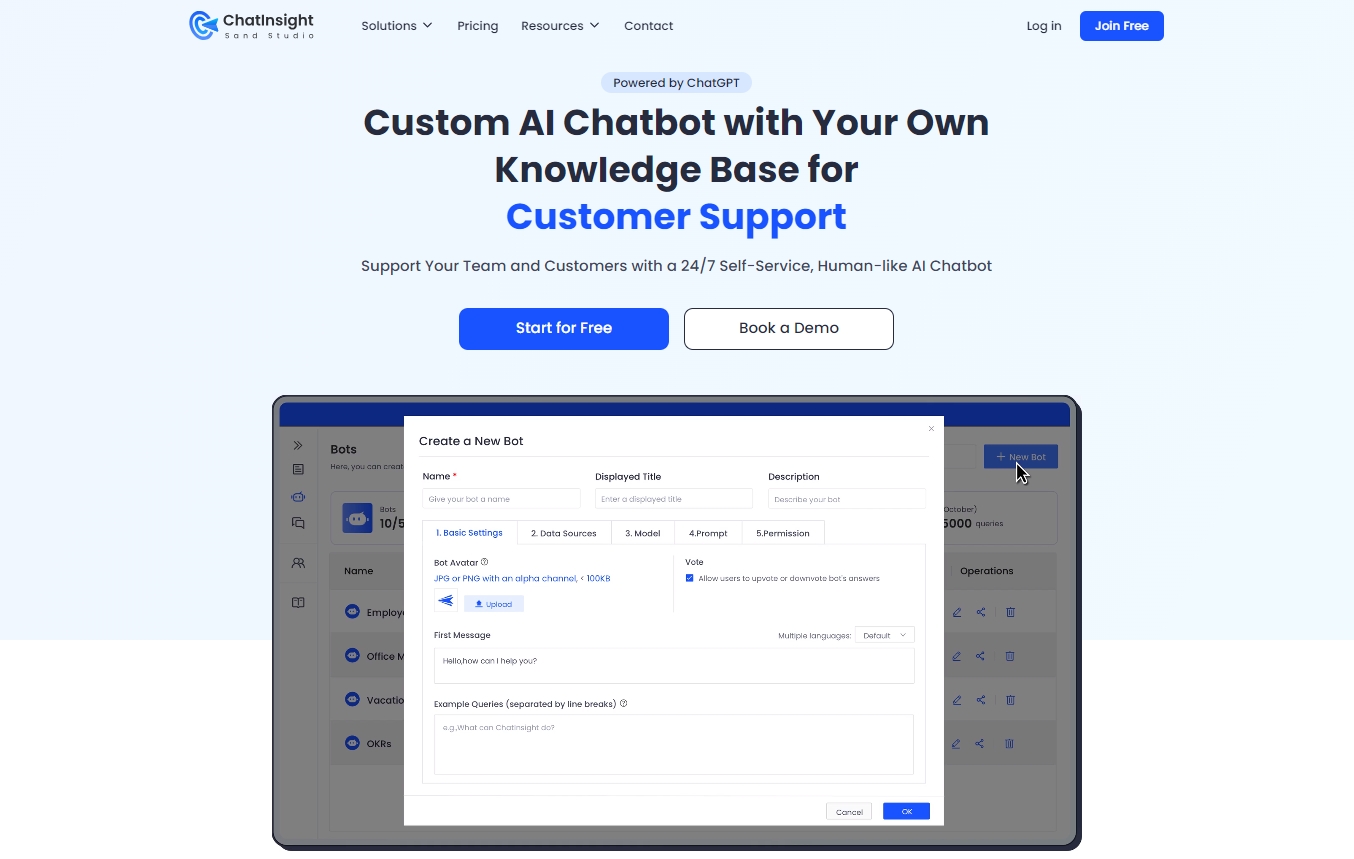
When it comes to conversational AI chatbots, ChatInsight is an excellent tool to consider. With its advanced capabilities in understanding contexts and intentions, ChatInsight AI enables chatbots to handle multiple questions simultaneously and provide quick and accurate responses. Whether it's for sales, market research, or customer service, ChatInsight.AI can be deployed in various business use cases. By integrating ChatInsight.AI into your chatbot strategy, you can enhance the performance and effectiveness of your conversational AI chatbots.
2. Meet Cody AI

Cody, just like ChatGPT, is a brilliant AI assistant to train businesses teams through your knowledge base. With Cody's abilities, you can support your teams, respond to inquiries, and help with innovative projects to increase the effectiveness of your team.
3. Chat Thing
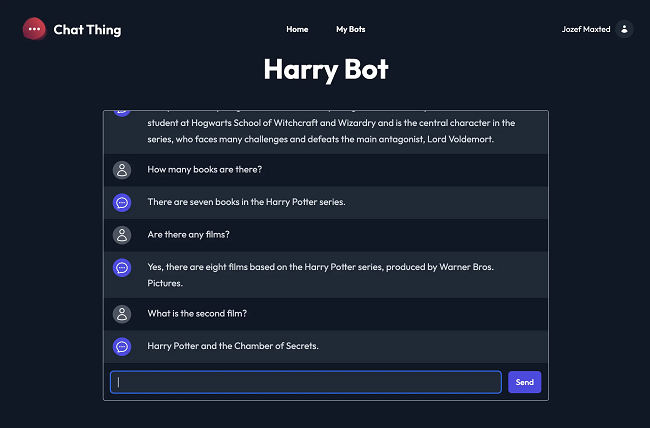
Chat Thing is an AI chatbot tool that enables users to create chatbots easily using existing data and documents, including Notion, Google Docs, and websites, giving relevant answers to your customers or team. It allows users to train their chatbots using data specific to their business or industry, making them more personalized and effective.
4. MyAskAI
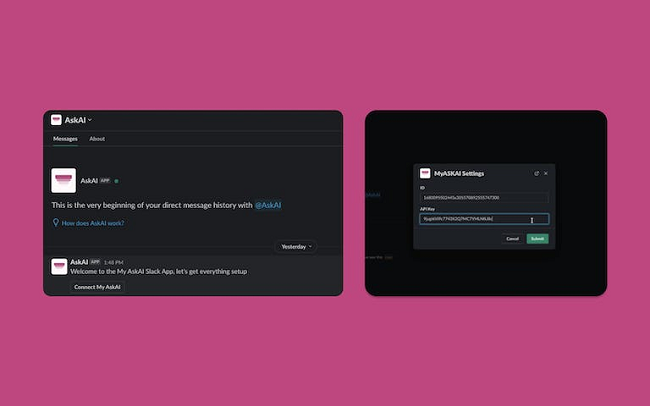
Using MyAskAI, you may creat a ChatGPT-based AI chatbot that can respond to any queries. You can submit any anything, including documents and websites, and then you can get quick and accurate answers from it. Additionally, it enables for follow-up inquiries and offers references to guarantee accurate information.
5. ChatNode
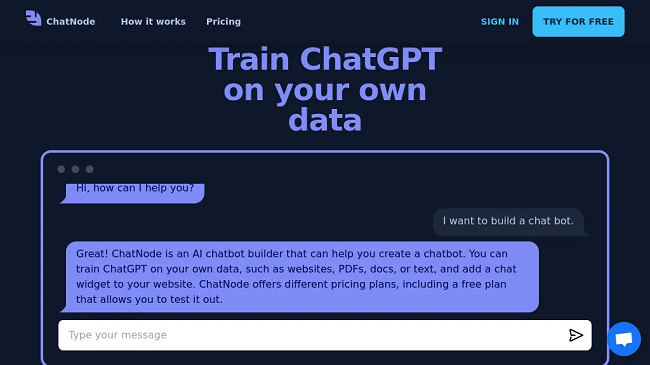
Using ChatNode, an AI chatbot builder, you can develop a chatbot using your own data, including text, webpages, PDFs, and other documents. You can use chatbots internally or integrate them into your website.
These examples highlight the diverse applications of conversational AI chatbots across industries and use cases. They showcase the power of natural language processing, contextual understanding, and personalized interactions that conversational AI enables.
Conclusion
The future of chatbots and conversational AI holds immense potential. As technology advances, these technologies are expected to become more popular and integral to our daily lives and work. They will become better equipped to handle complex queries, understand emotions, and provide personalized recommendations.
As organizations increasingly recognize the value of these technologies, AI chatbots anticipate wider adoption across industries, including customer service, healthcare, finance, retail and more. Ultimately, the conversational chatbots transform the way we communicate and work by creating more intuitive, efficient, and personalized interactions as human conversation.
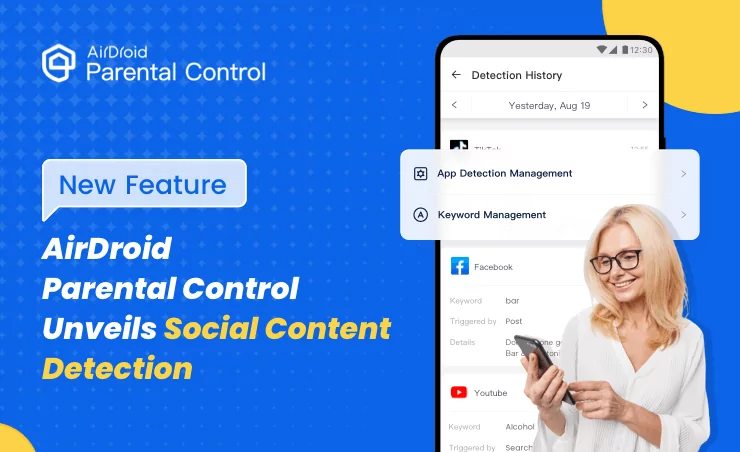
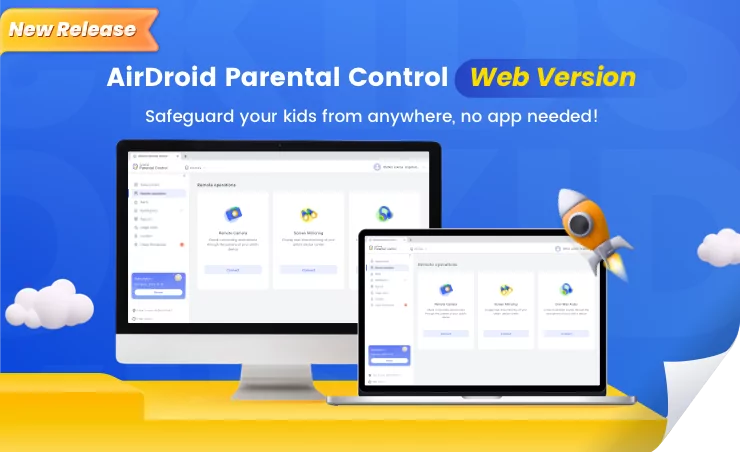
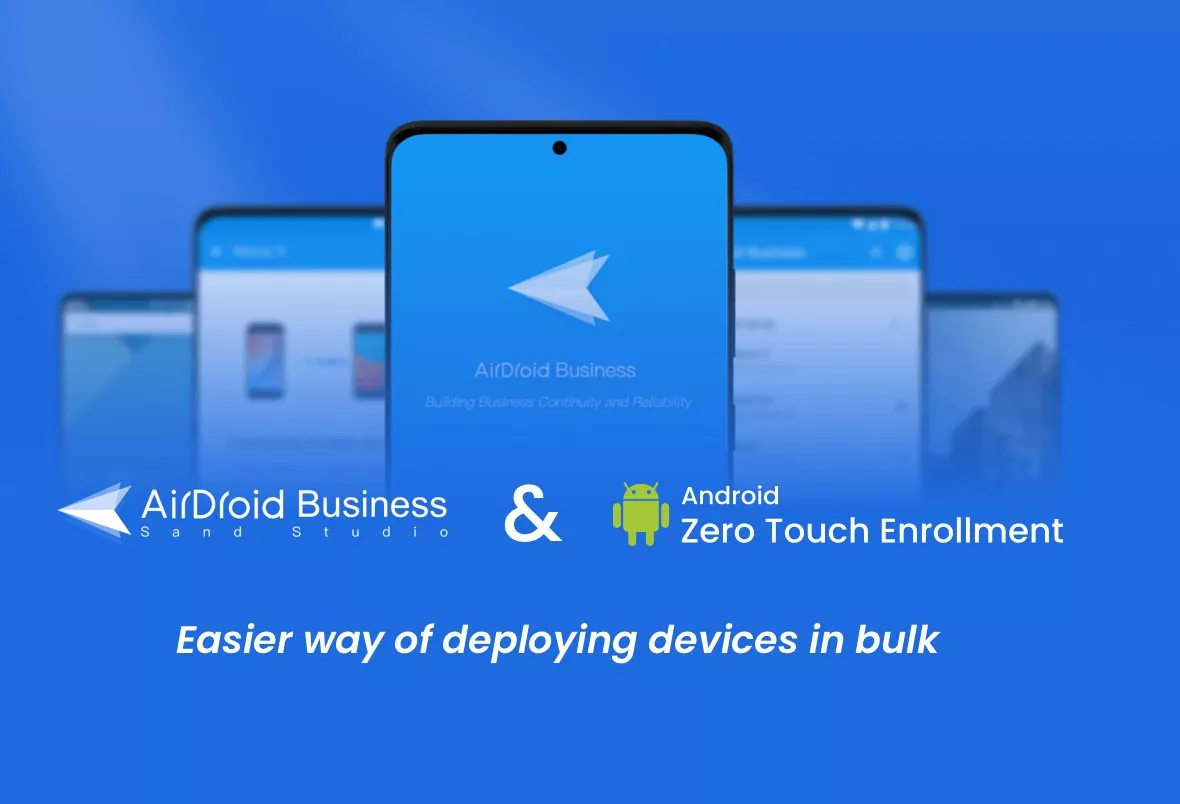





Leave a Reply.